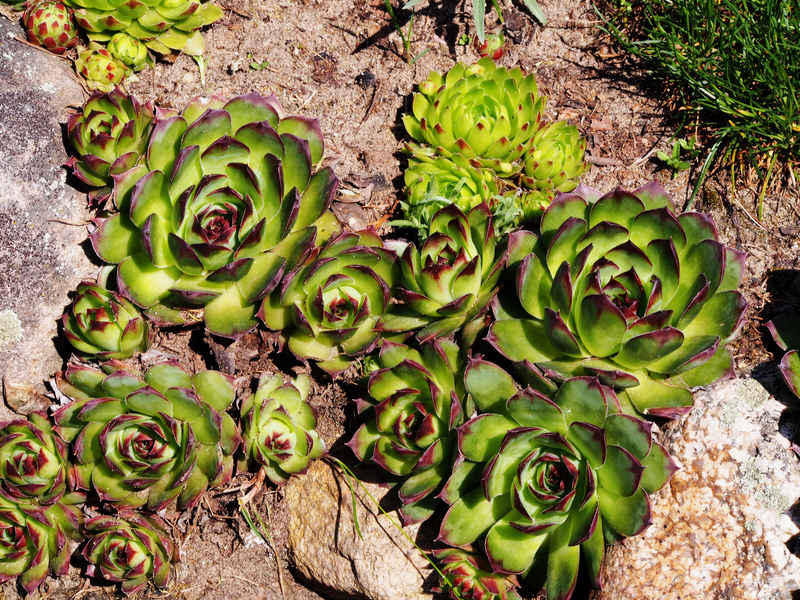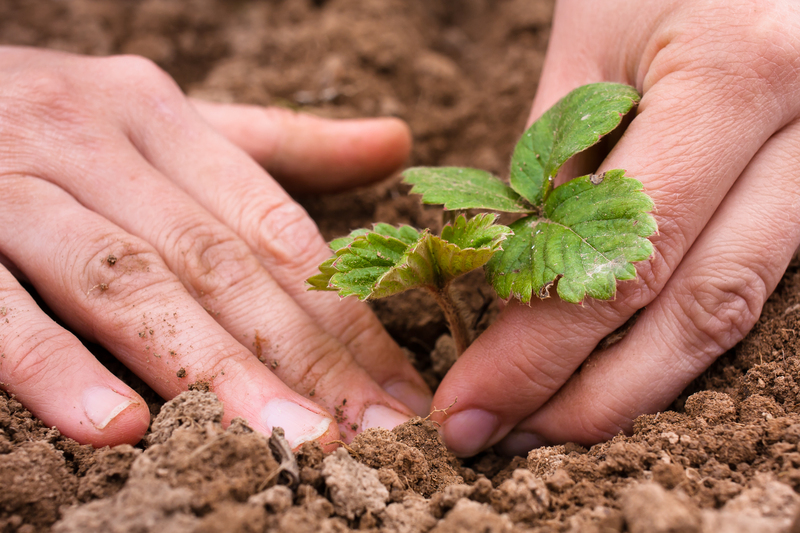The Alchemy of Compost: Waste to Soil Marvel
Posted on 10/06/2025
The Alchemy of Compost: Waste to Soil Marvel
Composting is more than just a process--it's a transformation akin to alchemy. What was once mere kitchen refuse or garden waste is artfully converted into rich, nourishing soil. In this comprehensive guide, we will dive deep into the alchemy of compost, exploring how everyday waste can become a soil marvel that supports lush gardens, thriving farms, and a greener planet.
Understanding Compost: The Basics of Soil Alchemy
Compost is decomposed organic material that enriches the soil. But what exactly makes this process magical? It's the natural breakdown of kitchen scraps, yard waste, and other biodegradable materials into a dark, crumbly substance teeming with life. This "black gold" holds the power to transform plant growth, water retention, and soil structure--all while reducing the burden on municipal landfills.
What is Composting?
At its core, composting is a biological process through which microorganisms--such as bacteria, fungi, and worms--break down organic matter in the presence of oxygen. Over time, these organisms convert raw waste into humus, a stable material that revitalizes soil fertility and structure.
Key Benefits: Why Compost is Nature's Miracle
- Soil Enrichment: Compost enhances soil texture, provides essential nutrients, and promotes robust plant growth.
- Waste Reduction: By composting, households can divert up to 30% of their waste from landfills.
- Erosion Control: Compost-improved soil retains more water and binds better, reducing erosion.
- Pollution Prevention: Healthy soil with compost acts as a filter, reducing runoff and pollution.
- Carbon Sequestration: Composting locks carbon into the soil, mitigating greenhouse gas emissions.

The Composting Process: Turning Waste Into Soil Marvel
To unearth the marvel of turning waste into precious soil, it's crucial to understand each stage of composting. Think of it as nature's recycling factory, with each phase bringing us closer to the final product: fertile compost.
Stage One: Collecting Compostable Materials
Begin your journey by gathering organic waste. Not all materials are created equal, so knowing what to add is key to a thriving compost heap.
- Greens: Vegetable scraps, fruit peels, coffee grounds, and fresh grass clippings add nitrogen.
- Browns: Dry leaves, straw, cardboard, and newspaper supply carbon.
- Avoid: Dairy, meat, oils, diseased plants, and pet waste--they can attract pests and slow decomposition.
Stage Two: Building the Perfect Compost Pile
The ideal compost mix balances carbon-rich ("brown") and nitrogen-rich ("green") materials. Expert composters recommend a ratio of around 2-3 parts browns to 1 part greens. Layer these materials, moistening each layer lightly as you go, but avoid making your pile soggy. Compost piles should ideally be at least three feet wide and tall to hold enough heat for efficient decomposition.
Stage Three: The Breakdown Begins
Microbes start digesting the waste, and the temperature inside the pile rises. This heat is critical--it speeds up decomposition and kills many weed seeds and pathogens. During this stage, turn or aerate your compost pile every week to keep it oxygen-rich and ensure all areas degrade evenly.
Stage Four: Curing and Harvesting Your Compost Marvel
After several months, the pile cools and matures. You'll notice a dark, crumbly, earthy-smelling substance--this is finished compost. Allow it to cure for a few weeks before using it in your garden. Sift out any large, undecomposed bits to return to the pile.
Why Compost is the Marvelous Currency of Healthy Soil
The finished product of effective organic composting isn't just good for your plants--it reinvigorates the very foundation of terrestrial life: soil. Here's how compost works its magic:
- Nutrient Booster: Compost stores and slowly releases a bouquet of nutrients like nitrogen, phosphorus, and potassium.
- Soil Life Enhancer: It feeds beneficial soil organisms, bolstering the soil food web.
- Water Retention: Humus-soaked compost acts as a sponge, helping sandy soils retain water and improving drainage in clay soils.
- pH Buffer: Compost helps balance soil pH, making it more suitable for a variety of plants.
The Science Behind Compost's Power
As the composting process unfolds, microbial alchemy breaks complex organic molecules into simpler forms, making nutrients more accessible to plant roots. When added to soil, compost provides an environment for microbes to thrive, creating a self-reinforcing cycle of fertility.
Types of Composting: Pick Your Soil-Transforming Style
There are many different ways to harness the power of compost. Choose the system that suits your lifestyle and garden size.
Backyard Composting
- Traditional Pile: Build an open compost heap in a designated backyard area.
- Compost Bins: Neat, enclosed structures that deter pests and retain heat.
Vermicomposting--Worms at Work
This method uses red wiggler worms to quickly break down food scraps, turning waste into nutrient-rich worm castings. It's ideal for apartments or small spaces.
Tumblers and Hot Composting
- Tumblers: Rotating bins speed up composting and make turning easy.
- Hot Piles: With careful management, these can generate enough heat to decompose materials in a few weeks.
Bokashi--Fermentation for Fast Results
This Japanese technique uses special bran to ferment food waste, including meat and dairy, into pre-compost that finishes breaking down in soil.
Composting Challenges and How to Overcome Them
Even the most seasoned gardeners can face composting hiccups. Understanding common issues helps you maintain a thriving compost pile and ensures you always have nutrient-rich soil at hand.
- Foul Odors: Bad smells indicate too much moisture or not enough air. Add dry browns and turn the pile.
- Pests: Avoid adding meat, dairy, or oily foods; secure your bin with a lid or wire mesh.
- Slow Decomposition: If your pile takes too long, chop materials smaller, balance the green/brown ratio, and increase aeration.
- Too Wet or Too Dry: Adjust by adding dry material or watering lightly as needed.
The Environmental Impact: Compost as a Global Solution
The alchemy of compost reaches far beyond backyards and farms. On a global scale, composting has the potential to revolutionize waste management and combat climate change.
- Reduces Landfill Waste: Organic matter dumped in landfills creates methane, a potent greenhouse gas. Composting intercepts this cycle.
- Restores Degraded Soils: Adding compost improves soil health and supports reforestation and sustainable agriculture.
- Increases Food Security: Healthier soil produces more robust crops, ensuring food for growing populations.
- Water Conservation: Compost-rich soil absorbs and holds water, making agriculture more resilient to drought.
How to Apply Finished Compost: Making the Most of Your Soil Marvel
Transforming your compost into a soil marvel involves more than simply spreading it on the ground. Here are expert tips for maximizing the benefits:
Top Dressing and Mulching
Spread a layer of finished compost around plants and across garden beds. This nourishes the roots, conserves moisture, and suppresses weeds naturally.
Soil Amendment Before Planting
Mix compost into the soil before sowing seeds or transplanting. This improves soil structure and boosts microbial activity, giving young plants a head start.
Compost Tea
Brewed from finished compost, this liquid fertilizer can be applied to soil or used as a foliar spray, delivering nutrients directly to plant leaves.
Compost and Community: Joining the Soil Revolution
Composting is as much a community movement as it is a personal practice. Cities and neighborhoods across the globe are jumping on the waste-to-soil marvel bandwagon through municipal composting programs, community gardens, and zero-waste initiatives.
- Community Compost Hubs: Shared bins in parks or gardens allow residents to pool waste and share finished compost.
- School Projects: Educating the next generation about composting inspires environmental stewardship.
- Business and Restaurant Initiatives: Cafes and markets partnering with composting facilities reduce their ecological footprint while giving back to local farms.

FAQs About Compost Alchemy
Can you compost in winter?
Yes! While decomposition slows due to the cold, insulating the pile and adding winter greens, like kitchen scraps, keeps the process going.
Is composting smelly or messy?
A well-maintained pile should have an earthy aroma. Avoid strong odors by balancing green and brown materials and aerating regularly.
How do I know when my compost is ready?
Finished compost looks dark, crumbly, and smells sweetly earthy, with few visible scraps.
Conclusion: Embracing the Alchemy of Compost
From waste to soil marvel, composting is one of the most profound ways we can participate in Earth's cycles and cultivate sustainability. Whether you're tending a backyard pile, nurturing a worm bin, or engaging in a community project, you become part of a larger movement--a quiet but powerful alchemy that transforms discards into abundance.
By embracing the science and art of compost, we don't just fertilize our gardens--we rejuvenate the planet, one handful of rich, living soil at a time.
Latest Posts
A Journey to Herb Garden Excellence Begins Here
Shield Your Greenery: Expert Winter Plant Care Strategies
Craft a Carefree Garden with These 5 Budget Solutions



